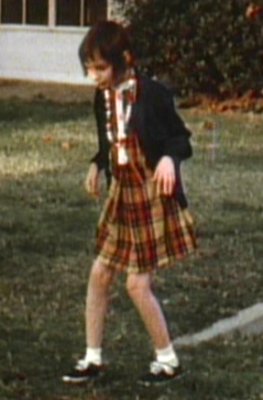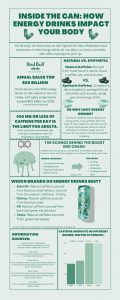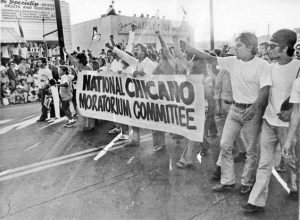Genie Wiley was the name given to a thirteen-year-old girl who had been a victim of severe abuse, neglect, and isolation since her birth. Her father, Clark Wiley, hated children and quickly tired of hearing baby Genie’s cries. As a result, at an early age, he threw her in the basement with nothing but a wire cage and a potty chair with a homemade strapping device. He believed Genie was mentally handicapped, and he used that excuse to keep Genie from both her family and from the outside world. He kept Genie either strapped to her potty chair or in a crib with her arms and legs immobilized. This left Genie severely malnourished. Her isolation made it impossible for her to acquire language during her childhood.1 Genie’s mother, Irene Wiley, who was almost blind from cataracts, and her older brother John Wiley, also suffered from the father’s abuse and lived in fear of him for years. But one day, Irene grew the courage to run off and tell a social worker about her husband’s dark secret. When the social worker found Genie, she was still wearing diapers and was unable to speak. Unable to face the truth of the damage he inflicted upon his family, Clark shot and killed himself. After thirteen years and seven months of unimaginable torture at the hands of her father, Genie was finally given the chance to learn how to live as an average human being. 2

In the first years after Genie’s liberation, psychologists, linguists, and other scientists became interested in Genie, seeing in her near-total isolation a unique chance to study many aspects of human development. The case was so scientifically important that the government funded a team of scientists to help answer the many questions that her conditions posed. James Kent, a child psychologist, and Susan Curtiss, a linguist, were the two scientists who became extremely close to Genie. Neither one of them had ever encountered a case as extreme as Genie’s. The scientists took advantage of the unheard of opportunity that Genie’s unique conditions provided them. Yet they also used Genie to address specific questions about “critical period theory” and the human mind. While many scientists researched Genie’s conditions, Susan Curtiss and James Kent had Genie stay with them in their own homes.3
The “critical period” theory states that there is a certain window of time when an adolescent can learn a language. The first few years of life is crucial for individuals to acquire their first language.4 If the learning of language occurs after this period of time, then the individual will never acquire the full command of a language. The evidence that supported the “critical period” theory was slim, which is why Genie was so important for proving or disproving the theory. According to the theory, Genie, who was now a teenager, had missed her time to learn words and grammatically put them into sentences. But the scientists wanted to try and see what repetitive teaching could accomplish. Susan Curtiss spent hours per week working with Genie to help her learn how to express herself in language.5

Susan Curtiss, a scientist from UCLA, worked with Genie in an attempt to improve her language skills. Genie seemed to have little to no control over any speech organs, and she showed defects in the muscles she used for chewing and swallowing. Susan Curtiss thought that if Genie was able to understand the English language spoken to her, then there was a good chance this would reflect some linguistic knowledge of the language, even though physical and psychological impediments prevented her from using this knowledge to produce speech. Unfortunately, Genie was unable to understand and respond to any form of commands, which meant that a controlled comprehension test would have to wait. Even though Genie scored at the level of a 1-year-old at her initial assessment, she quickly began adding new words to her vocabulary. Genie started by learning single words like “dog” and “run,” and then she began putting two words together, like “a dog house,” which is something young children can do.6 Curtiss began to feel that Genie would be fully capable of acquiring language. She had found that while Genie could use words, she could not produce grammar or even put together sentences. She could not arrange these words in a meaningful way. It started looking as though the “critical period” theory of language development might indeed be correct.7
James Kent, a child psychologist, stated that his first impression of Genie was incredibly surprising. Hers was the worst case of child abuse he had ever encountered, and he became extremely pessimistic about Genie’s prognosis. The restraints that Genie’s father used caused Genie’s wrists to develop extreme bruising, and her bones were unable to grow while she had been forced to sleep inside a crib. Kent found it extremely difficult to test Genie’s mental age, but the two times he did showed that Genie had the same mental ability as a thirteen-month old child.8 Despite tests confirming that she had normal vision in both eyes, she could not focus them on anything more than ten feet away. This was caused by being locked up inside a small room for thirteen years.9

Jay Shurly, a professor of psychiatry and behavioral sciences at the University of Oklahoma and a specialist in social isolation, took interest in Genie’s case. He started visiting Genie three days a week to conduct a sleep study to see if Genie was autistic, mentally challenged, or if she had sustained any bring damage during the time she was isolated. Shurly’s study concluded that Genie Wiley was not autistic but had high levels of emotional disturbance. Jay Shurly’s sleep study also showed a significantly reduced amount of REM sleep and a large number of sleep spindles. Shurly soon concluded that, based on the unusual amount of sleep spindles, Genie had been mentally retarded since birth. Some of the other scientists were not 100% sure if this information was true due to the substantial progress Genie was making in expressing herself. Much later, for example, Susan Curtiss argued that, even though Genie obviously had serious emotional issues, she could not have been retarded. She pointed out that Genie made a year’s developmental progress for every calendar year after her rescue, which would not be expected if her condition was congenital, and that some aspects of language that Genie acquired were uncharacteristic of mentally retarded individuals.10
>On account of many people fighting over Genie to do their research, Genie was forced to move back in with her biological mother in 1975. Genie’s mother attempted to sue the children hospital and many other scientists for treating her daughter more like a test dummy than a human being. All scientists were shut off from Genie. This caused Genie’s conditions to get worse and her mother found her too difficult to take care of and sent her back into a foster home, where Genie was subject to further abuse. After scientists were no longer allowed to use Genie as a test subject, more questions arose.11 Did research interfere with Genie’s therapeutic treatment? Unfortunately, after leaving Genie alone in foster care, her progress was compromised and she was afraid to open her mouth, which led her back to silence.12
- Encyclopedia of Special Education: A Reference for the Education of Children, Adolescents, and Adults with Disabilities and Other Exceptional Individuals, 2013, s.v. “Kasper Hauser Syndrome,” by Cecil R. Reynolds, Kimberly J. Vannest, and Elaine Fletcher-Janzen. ↵
- Kendra Cherry, “Overview of feral child Genie Wiley,” Very well Mind, November 25, 2018, https://www.verywellmind.com/genie-the-story-of-the-wild-child-2795241. ↵
- Loretta Kasper, “The Civilizing of Genie,” In Teaching English through the Disciplines: Psychology, October 8, 2002, http://kccesl.tripod.com/genie.html. ↵
- Dictionary of Linguistics and Phonetics, 2008, s.v. “Critical period,” by David Crystal; Salem Press Encyclopedia, 2018, s.v. “Critical Period Hypothesis,” by Janine Ungvarsky. ↵
- Loretta Kasper, “The Civilizing of Genie,” In Teaching English through the Disciplines: Psychology, October 8, 2002, http://kccesl.tripod.com/genie.html. ↵
- Dictionary of Sociolinguistics, 2004, s.v. “Zone of proximal development (ZPD),” by Joan Swann, Ana Deumert, Theresa Lillis. ↵
- Loretta Kasper, “The Civilizing of Genie,” In Teaching English through the Disciplines: Psychology, October 8, 2002, http://kccesl.tripod.com/genie.html. ↵
- Encyclopedia of Special Education: A Reference for the Education of Children, Adolescents, and Adults with Disabilities and Other Exceptional Individuals, 2013, s.v. “Genie,” by Cecil R. Reynolds, Kimberly J. Vannest, and Elaine Fletcher-Janzen. ↵
- Encyclopedia of Special Education: A Reference for the Education of Children, Adolescents, and Adults with Disabilities and Other Exceptional Individuals, 2013, s.v. “Kasper Hauser Syndrome,” by Cecil R. Reynolds, Kimberly J. Vannest, and Elaine Fletcher-Janzen. ↵
- Roger Shattuck, The Forbidden Experiment (New York: Farrar Straus Giroux, 1980), 216-218; Kendra Cherry, “Overview of feral child Genie Wiley,” Very well Mind, November 25, 2018, https://www.verywellmind.com/genie-the-story-of-the-wild-child-2795241. ↵
- Kendra Cherry, “Overview of feral child Genie Wiley,” Very well Mind, November 25, 2018, https://www.verywellmind.com/genie-the-story-of-the-wild-child-2795241. ↵
- Encyclopedia of Special Education: A Reference for the Education of Children, Adolescents, and Adults with Disabilities and Other Exceptional Individuals, 2013, s.v. “Feral Children,” by Cecil R. Reynolds, Kimberly J. Vannest, and Elaine Fletcher-Janzen. ↵



109 comments
Rosa Robledo Martinez
This article was very sad knowing , that Genie suffered a lot of abuse as a child. It just upsets me that her dad, didn’t care for her. Like why would someone want to be a parent if all they want to do is cause harm to their own children. What kind of man treats their own child like if she was nothing, it’s sad that at a young age he basically threw her to their basement and locked her up.
Jose Maria Llano Aranalde
Really hard to read about and imagine someone being treated this way for such a long time. The constant abuse from her father and not having the ability to interact with others had a drastic effect on her life. It shocked me that just as she was getting the help and attention that she needed her mother just decided to take that away from her. Not letting the scientist continue their research and help her daughter. Really like the article because it went into great detail.
Vania Gonzalez
The fact that this even happened is saddening, it is horrible to think that this could happen and that Genie had one of the worst cases of under development because of her isolation. I understand that the doctors were trying to help but at the same time it wasn’t right that they were basically fighting over her. But the intentions were good and at least they were helping her progress. Great article and interesting topic.
Brianna Trevino
The article was very sad to read about the severe abuse she went through for the past thirteen years of her life. It upset towards the end of the article that her own mother who grew the courage to run off and tell a social worker of her husband’s abuse and then ends up deciding to end the research and her daughters progress she had made with the doctors. Places her in a foster home were condition gets worse. Was the running away to get help really for her family or for herself.
Brianna Trevino
The article was very sad to read about the severe abuse she went through for the past thirteen years of her life. It upset towards the end of the article that her own mother who grew the courage to run off and tell a social worker of her husband’s abuse and then ends up deciding to end the research and her daughter’s progress she had made with the doctors. Places her in a foster home were condition gets worse. Was the running away to get help really for her family or for herself?
Alin Bocardo Felix
The article’s inclusion of Genie’s life after the treatment is sad to think about. Her mom, aware of the abuse her daughter endured and then of the improvement of her daughter’s health, still decided to threaten the scientists and that is selfish. Genie was forced into a terrible life, of continued abuse and neglect, and if only it hadn’t taken the mom thirteen years to build up the courage, Genie might have been saved. The ‘Critical Period Theory’ was unfortunately, proven right, but the question arises as to how it was brought up to the light in the first place. How did someone so accurately depict the age gap and the specific issues, were there actual subjects for this theory ? Overall, the article is well written and detailed, which only saddens the reader a little more.
Michael Lazcano
I think it’s interesting that the conditions she endured poured over into her sanity and personality, the conversation of nature vs nurture becomes very apparent within this article. We are always growing and adapting, but as a child our brains are the most vulnerable and also accepting as they will ever be, it is also possible that Genie experienced Stockholm syndrome along with all the other issues she developed due to neglect and abuse. The fact that social service did not step in is also alarming, and I hope that strives in improving the way social services interacts in these situations has improved in the past years, this is something that shouldn’t be repeated or replicated.
Amanda Uribe
Genie’s whole story has been so sad. I think the saddest part is the way she was treated like a test subject after she was liberated from all of the abuse she had to go through. In some ways, I think that they did help her when they were trying to teach her things and language. Sadly genie was not able to learn language but I hope she is properly taken care of and looked after.
Brisella Olivares
Wow. This story was very hard to read. I can’t imagine someone living a life as harsh as she did, no one deserves to be treated like how she was treated. It upsets me that she didn’t get any better and that instead of trying to help her they dehumanized her and treated her as a test subject.
Nelly Perez
This was disturbing to read. This is the first time I read about Genie and the critical period theory. Her father basically caused the damages to her by locking her up and not teaching her anything. Scientists did get to research, but they should have taken the time to help her recover. She could not speak much or understand anything since they just used her for research. The only contact she got to experience was contact with scientists and psychologists.